See one of the following pages:
See one of the following pages:

Advertising is a marketing communication that employs an openly sponsored, non-personal message to promote or sell a product, service or idea. Sponsors of advertising are typically businesses wishing to promote their products or services. Advertising is differentiated from public relations in that an advertiser pays for and has control over the message. It differs from personal selling in that the message is non-personal, i.e., not directed to a particular individual. Advertising is communicated through various mass media, including traditional media such as newspapers, magazines, television, radio, outdoor advertising or direct mail; and new media such as search results, blogs, social media, websites or text messages. The actual presentation of the message in a medium is referred to as an advertisement.
Jelly may refer to:
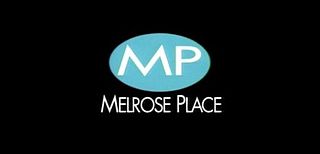
Melrose Place is an American prime time television soap opera that aired on Fox from July 8, 1992, to May 24, 1999, for seven seasons. The show follows the lives of a group of young adults living in an apartment complex called Melrose Place, in West Hollywood, California. The show was created by Darren Star for Fox and executive produced by Aaron Spelling for his company, Spelling Television. It was the second series in the Beverly Hills, 90210 franchise. Season one and season two were broadcast on Wednesday at 9 p.m., after Beverly Hills, 90210. In 1994, for its third-season premiere, the show moved to Monday at 8 p.m.
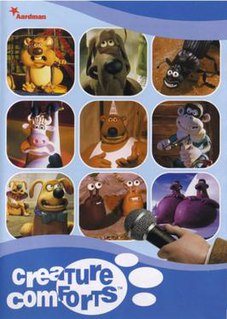
Creature Comforts is a British stop-motion comedy mockumentary franchise originating in a 1989 British humorous animated short film of the same name. The film matched animated zoo animals with a soundtrack of people talking about their homes, making it appear as if the animals were being interviewed about their living conditions. It was created by Nick Park and Aardman Animations. The film later became the basis of a series of television advertisements for the electricity boards in the United Kingdom, and in 2003, a television series in the same style was released. An American version of the series was also made.

Product placement, also known as embedded marketing, is a marketing technique where references to specific brands or products are incorporated into another work, such as a film or television program, with specific promotional intent. Much of this is done by loaning products, especially when expensive items, such as vehicles, are involved. In 2021, the agreements between brand owners and films and television programs were worth more than US$20 billion.
WPP plc is a British multinational communications, advertising, public relations, technology, and commerce holding company headquartered in London, England. It was the world's largest advertising company, as of 2019. WPP plc owns many companies, which includes advertising, public relations, media, and market research networks such as AKQA, BCW, CMI Media Group, Essence Global, Finsbury, Grey, Hill+Knowlton Strategies, Mindshare, Ogilvy, Wavemaker, Wunderman Thompson, and VMLY&R. It is one of the "Big Four" agency companies, alongside Publicis, Interpublic Group of Companies, and Omnicom. WPP has a primary listing on the London Stock Exchange, and is a constituent of the FTSE 100 Index.

Mr. Clean is a brand name and mascot, owned by the American company Procter & Gamble, used for an all-purpose cleaner and later also for a melamine foam abrasive sponge.

Kool-Aid Man is the official mascot for Kool-Aid, a brand of flavored drink mix. The character has appeared on television and in print advertising as a fun-loving, gigantic, and joyful anthropomorphic pitcher filled with "The Original Flavor" Cherry Kool-Aid. He is typically featured answering the call of children by smashing through walls or furnishings and then holding a pitcher filled with Kool-Aid while saying his catchphrase, "Oh yeah!" He had a comic series produced by Marvel where he fought evil villains called "Thirsties" and even fought a man engulfed in fire named Scorch. He can also come in many different colors such as red, blue, green, and purple.
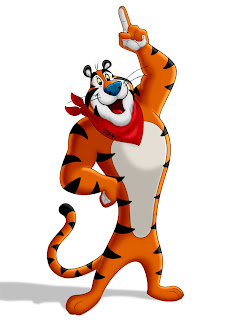
Tony the Tiger is the advertising cartoon mascot for Kellogg's Frosted Flakes breakfast cereal, appearing on its packaging and advertising. Tony has also been the mascot for related cereals such as Tony's Cinnamon Krunchers and Tiger Power. Since Tony's debut in 1952, the character has spanned several generations and has become a breakfast cereal icon.

Good & Plenty is a brand of licorice candy. The candy is a narrow cylinder of sweet black licorice, coated in a hard candy shell to form a capsule shape. The pieces are colored bright pink and white and presented in a purple box or bag.
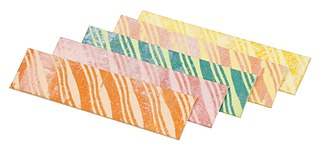
Fruit Stripe is an artificially and naturally flavored fruit chewing gum. The individual pieces of gum have stripes marked on them, and it is packaged in zebra-striped wrappers, which also act as temporary tattoos.
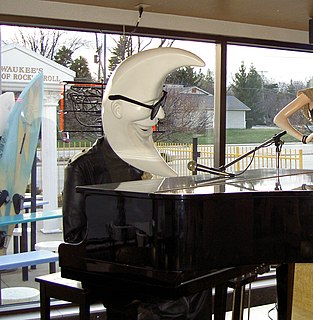
Mac Tonight is a fictional character used in the marketing for McDonald's restaurants during the late 1980s. Known for his crescent moon head, sunglasses and piano-playing, the character used the song "Mack the Knife" which was made famous in the United States by Bobby Darin. Throughout the campaign, Mac was performed by actor Doug Jones in his fourth Hollywood job and voiced by Roger Behr.

Crazy Frog is a Swedish CGI-animated character and Eurodance musician created in 2003 by actor and playwright Erik Wernquist. Marketed by the ringtone provider Jamba!, the character was originally created to accompany a sound effect produced by Daniel Malmedahl while attempting to imitate the sound of a two-stroke engine.
Mobile marketing is a multi-channel online marketing technique focused at reaching a specific audience on their smartphones, feature phones, tablets, or any other related devices through websites, e-mail, SMS and MMS, social media, or mobile applications. Mobile marketing can provide customers with time and location sensitive, personalized information that promotes goods, services, appointment reminders and ideas. In a more theoretical manner, academic Andreas Kaplan defines mobile marketing as "any marketing activity conducted through a ubiquitous network to which consumers are constantly connected using a personal mobile device".
Since it was founded in 1954, international fast food chain Burger King has employed many advertising programs. During the 1970s, its advertisements included a memorable jingle, the inspiration for its current mascot the Burger King and several well-known and parodied slogans, such as Have it your way and It takes two hands to handle a Whopper. From the early 1980s until approximately 2002, Burger King engaged a series of advertising agencies that produced many unsuccessful slogans and programs, including its least successful campaign, Where's Herb?.
Brand awareness is the extent to which customers are able to recall or recognize a brand under different conditions. Brand awareness is one of two dimensions from brand knowledge, an associative network memory model. Brand awareness is a key consideration in consumer behavior, advertising management, and brand management. The consumer's ability to recognize or recall a brand is central to purchasing decision-making. Purchasing cannot proceed unless a consumer is first aware of a product category and a brand within that category. Awareness does not necessarily mean that the consumer must be able to recall a specific brand name, but they must be able to recall enough distinguishing features for purchasing to proceed. Creating brand awareness is the main step in advertising a new product or bringing back the older brand in light.

King Vitaman was an American brand of breakfast cereal produced by Quaker Oats and sold in the United States. The cereal was introduced in 1968, and changed mascots several times. The cereal was discontinued in 2019.